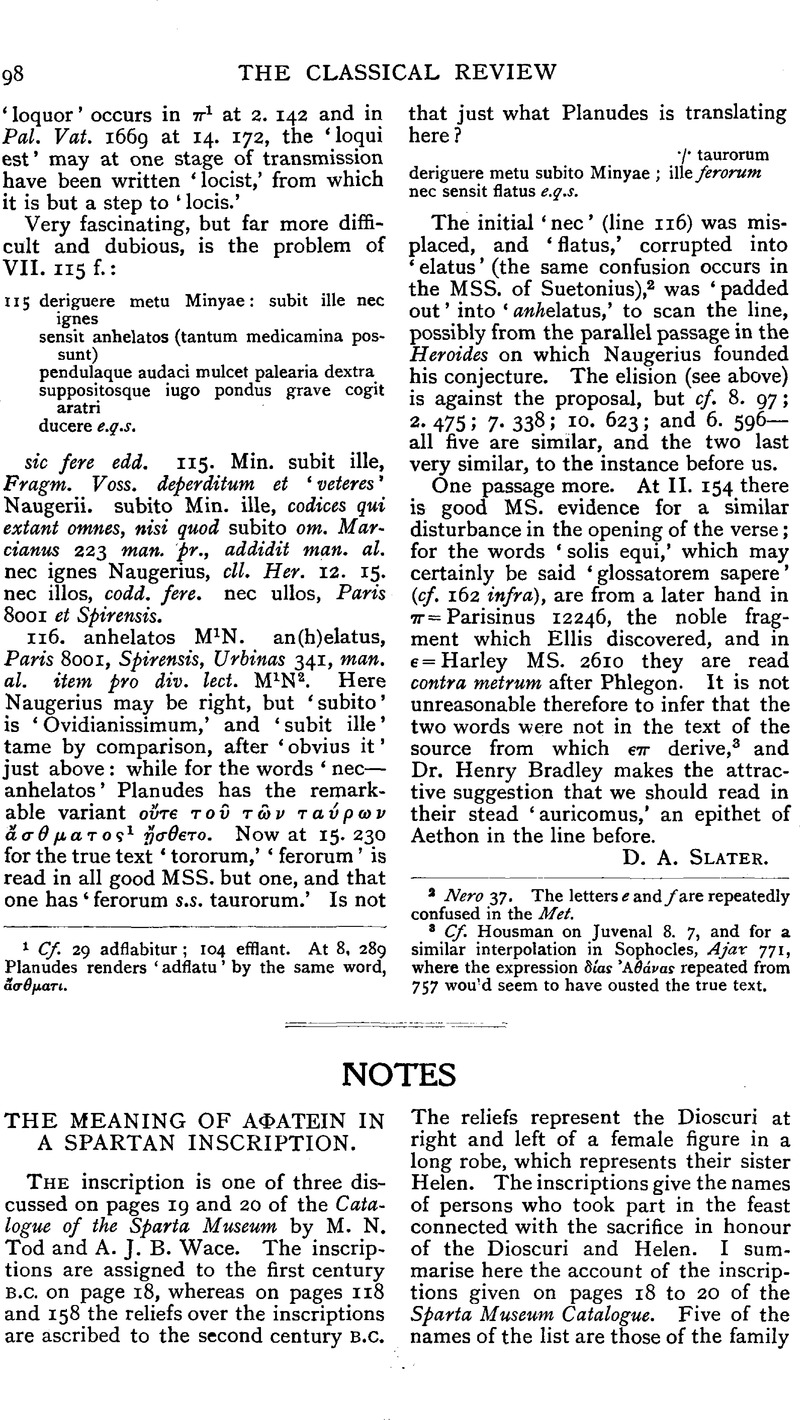No CrossRef data available.
Published online by Cambridge University Press: 27 October 2009

page 99 note 1 ![]() , Athen. 5, p. 271 f.
, Athen. 5, p. 271 f.
page 99 note 2 Constant. Caer. 336, 10.
page 102 note 1 Serv. in Aen. II. 566, 592 ; id.,. Vita Verg.
page 102 note 2 Several helmets were found together; see the official guide to the antiquities in the Naples Museum, edited by A. Ruesch (1908), pp. 414–416.
page 102 note 3 Atene e Roma, XXII. (1919), pp. 113–127.
page 102 note 4 Comparetti's quotation, ‘Troiae sub moenibus altis,’ is not altogether apt, as the lines Aen. I. 95, X. 469, refer to the plain outside the city.
page 103 note 1 Since writing the above, I have seen two important discussions of the lines in question, which appeared in Germany during the War : R. Heinze, Virgils Epische Technik, third edition, pp. 45–51 ; and A. Körte, ‘Zum Zweiten Buch von Vergils Aeneis,’ in Hermes, li.(1916), pp. 145–150. Both these writers are positive that the Helen episode is un-Virgilian, but they differ in their ideas as to what may have stood in its place, and as to Virgil's method of composition in this book.
page 103 note 2 Journal of Roman Studies, 1916, pp. 66–7.
page 103 note 3 It has not found a place even in Greenidge and Clay's Sources of Roman History, 133–70 B.C.
page 103 note 4 His ultimate source is usually supposed to have been Livy.
page 103 note 5 See book 35 (Teubner, pp. 15–30), relating to 87–4 B.C., and the passage on the rebellion of Lepidus (Teubner, pp. 33–5).
page 104 note 1 Appian, Bell. Civ. I. 103.
page 104 note 2 Loc. cit. p. 63 sq.
page 104 note 3 The Sulpician laws, taken as a whole, look like the work of a real statesman, and not of a mere partisan.
page 104 note 4 Plutarch, Sulla, chap. viii. This admission comes from a writer whose ultimate source is manifestly unfriendly to Sulpicius.